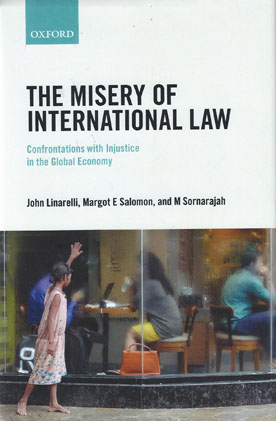We are now closed for the Christmas and New Year period, returning on Monday 5th January 2026. Orders placed during this time will be processed upon our return on 5th January.

Problems of global poverty, inequality and their attendant harms have begun to attract the attention of international lawyers as well as those in other disciplines.
One of the major contributors to the perpetuation of poverty and inequality has been in the making of an instrumentalist international law on the basis of economic preferences for market-based models on how the global economy should function. This bias in international law saw its rise begin in the 1980s and continues in various guises today.
This book offers an overdue coalescence of international legal regimes on the subject of the making of market primacy and the unmaking of global justice today. It looks at the various regimes of modern international economic law as well as international human rights law to examine whether, when and how these regimes have supported market primacy and what that points to today.
Does the rise of emerging powers underpin a new liberalism? Does the recent demand by industrialized states for regulatory space shift the terms of international investment law away from a legal regime that granted rights but imposed no duties on transnational companies? Does the ubiquitous 'business and human rights' agenda radically alter the role and centrality of markets and reorient them as means to humans ends?
Is neoliberalism in retreat and if so what would this represent for humanity? It remains yet unclear what a full consideration of international law will point to. Whether we are heading towards a new liberalism or more neoliberalism, or perhaps at best neoliberalism with a human face, will be the focus of this novel book.